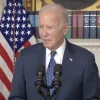States Get Serious About Tax Cuts
Congressional Democrats are debating which taxes to increase, while the Biden White House is negotiating a world-wide cartel to limit tax competition. But in the 50 states there is a dramatic increase in tax competition to provide the best government at the lowest cost.
Economists have long noted the power of interstate tax competition for jobs and investment. In 2021 the 10 states that gained the most residents from domestic in-migration had an average total state and local tax burden as a percentage of income of 7.7%, notably lower than the 9.9% of the 10 states that lost the most residents. Interstate migration and tax competition are increasing for four reasons:
First, two years of working from home during Covid taught employees and employers that it isn’t necessary to live in high-tax states.
Second, thanks to the limits on the deductibility of state and local taxes in the 2017 tax reform, blue states with high income and property taxes no longer have the cost of their high-tax policies hidden and subsidized by reduced federal income taxes.
Third, Americans have noticed that high-tax states don’t provide better roads, education or other services. Florida (with 22 million residents) has no income tax and the state spends half as much as New York (20 million residents). New York has a top state income tax of 8.82% (soon rising to 10.9%) and was the only state to raise its personal income-tax rate during the pandemic.
Fourth, state leaders have discovered that they can reduce marginal income-tax rates by relying on triggers that permanently reduce the state income tax when revenue rises above a predetermined spending limit. Tax reduction is enabled by spending restraint. North Carolina provided the best example of this strategy over the past seven years.
Today eight states have no personal income tax: Alaska, Florida, Nevada, South Dakota, Tennessee, Texas, Washington and Wyoming.
Two more states have already enacted laws to phase to zero. New Hampshire, which never taxed wage income, voted in 2021 to phase out its tax on dividends and interest over five years, under the leadership of Senate President Chuck Morse. Louisiana, under the leadership of Senate Majority Leader Sharon Hewitt, has set a path to reduce its income tax every year triggers are met. These triggers could take Louisiana’s income tax to zero by 2034, particularly if the Legislature implements additional rate cuts in coming years.
Ten other states have begun the march to a zero rate. West Virginia’s Senate, with the enthusiastic support of Gov. Jim Justice, has voted to draw down the state income tax. So has the state House in North Dakota. Mississippi Gov. Tate Reeves was elected in 2019 on a promise to end the income tax. In January, under the leadership of Speaker Philip Gunn, the Mississippi House voted 96-12 to move to zero.
Arizona Gov. Doug Ducey was re-elected in 2018 with the stated goal of driving the income tax to zero. Last year the Legislature, led by House Majority Leader Ben Toma and Sen. J.D. Mesnard, passed a phase-down of the personal income tax to a flat rate of 2.5% by 2025. Arizona Republicans are committed to taking the rate to zero.
North Carolina has been on the path to zero for its individual and corporate rates since 2013, when the House and Senate began revenue-trigger-facilitated tax reform that permanently cut the state personal and corporate income tax rates. They started with a top individual rate of 7.75% and a corporate rate of 6.9%. Thanks to the latest round of tax cuts, the now-flat personal income tax will fall to 3.99% by 2027, and the corporate rate, now 2.5%, will zero out over the next decade.
Wisconsin legislators recently announced that their goal is to eliminate the state income tax. They need a governor who would sign such a reform, which they don’t have but may get after November. “When you look at all the states that are growing right now, they don’t have a state income tax,” state Sen. Roger Roth said in January after it was announced that the state has a nearly $4 billion surplus.
Iowa Gov. Kim Reynolds has a plan to reduce the personal income tax to a flat 4% over four years. Senate Majority Leader Jack Whitver and Senate Ways and Means Chairman Dan Dawson have a plan that moves to a flat rate of 3.6% over six years, followed by a full phaseout.
Oklahoma Gov. Kevin Stitt is promoting a significant income-tax reduction and making it clear this is step one on a march to zero. In South Carolina, Gov. Henry McMaster led his 2021 State of the State address with a commitment to cut the state income tax.
In Arkansas former Trump press secretary Sarah Huckabee Sanders is the Republican candidate for governor, running on a promise to end the income tax on the heels of a phased reduction of the income tax signed by Gov. Asa Hutchinson.
Lawmakers in Washington could learn from these examples. Or today’s congressmen and senators may be replaced by governors and state legislators who have demonstrated what works.
By: Grover Norquist
Mr. Norquist is president of Americans for Tax Reform.










